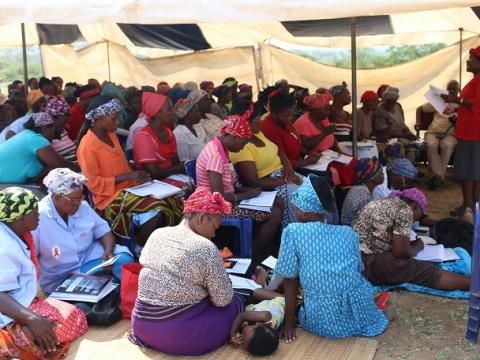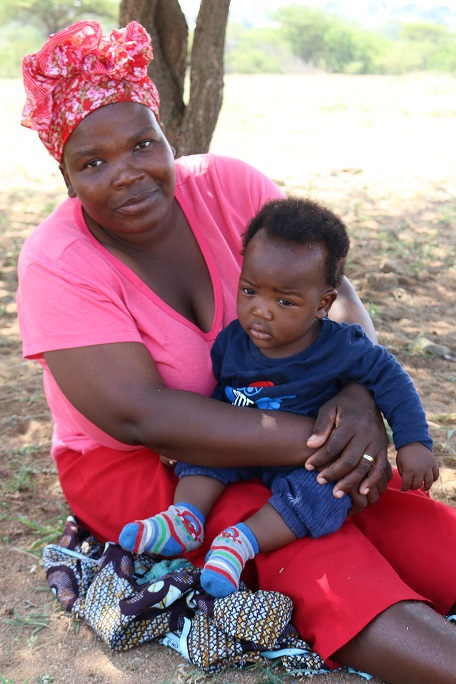Swazi women rise up against El Nino and malnutrition

The tent was buzzing with women talking to each other as the trainer Simengele Ngcampholala guided mothers seated in the front row about the proper way to feed babies. “I am learning a lot from this activity. I can use the knowledge for my family and share it with my community”, said 27-year old mother Geebeli who came with her 10-month old baby Amahle sleeping at her back.
That day, Geebeli came with 86 women from different villages in Shiselweni district to join the week- long Rural Health Motivators workshop conducted by the Swaziland Food and Nutrition Council (SFNC) supported by World Vision and UNICEF.
The workshop includes the importance of proper infant feeding, management of childhood illnesses, use of screening tools for children under 5 years old among many other food and nutrition topics. Geebeli found all these interesting and helpful.
According to Muzi Michael Dlamini, the SFNC program officer, many of the families were affected by El Nino. “This is the worst I have ever experienced in my 31 years and even the elderly said they have not gone through a similar crisis like this in the country. Many of the people are suffering from lack of food”, Dlamini added.
He said, “Without food and proper nutrition, cases of malnutrition and health problems have increased especially among children”. World Vision has started food distribution in the district to augment the urgent need. Alongside this, workshops are conducted for health and sanitation awareness raising. Dlamini expressed thanks that World Vision revived the program which for a time stopped for lack of funding.
The women who were trained are expected to help the government educate their communities on rural health and monitor children’s well-being. They were also taught various reporting tools as they monitor the status of malnutrition in their areas.
John Mgeni, SFNC rural health motivators’ program officer, added that the women are provided the stipend of US$25 per month and become community health volunteers. “They have to be between 25 to 45 years old, have attended school up to secondary level and residents of the community they will serve”, Mgeni said.
Both officers agree that the families could consume whatever food they have saved by July and supporting them in the succeeding months while they plant is critical. A total of 1,250 women are participating in this program covering the Lubombo and Shiselweni regions.
Working closely with the government and other partners in the country, World Vision’s humanitarian assistance targets 60,000drought affected people in Lubombo and Shiselweni Regions and mitigate the impact of food and nutritional crisis among vulnerable households.
Below, Sifiso Matsenjwa, 43, is among the 86 women who joined the week's workshop and brought along her youngest son Telamsile Shongwe.
